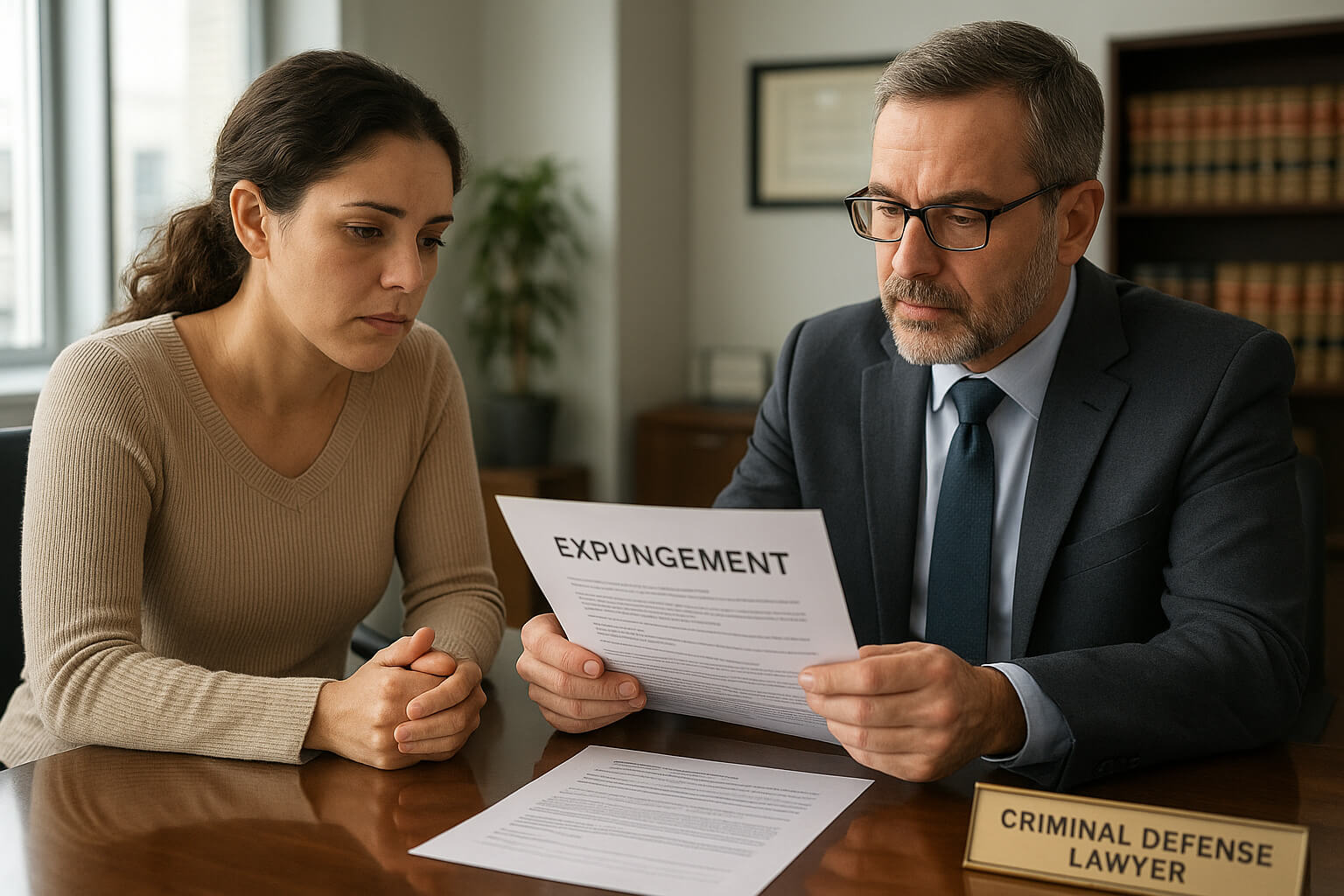September 17, 2025

A criminal record doesn’t just stay in the past—it can follow you for years, impacting your ability to work, rent housing, earn professional licenses, or volunteer in your community. Even minor offenses can show up on background checks, creating barriers long after you’ve paid your debt to society.
That’s where expungement comes in. It’s a powerful legal remedy that allows certain individuals to seal or erase their criminal records, offering a clean slate and a second chance.
Below is a comprehensive, step-by-step guide to understanding the expungement process—and how an experienced criminal defense attorney can help you take full advantage of it.
Expungement is a court-ordered process that effectively removes a criminal record from public access. Once expunged:
However, certain government entities (like law enforcement or immigration services) may still access the sealed records under specific circumstances.
Important Distinction: Expungement is different from record sealing in some states. Sealing hides the record from public view, while expungement may destroy or remove it entirely from official records.
Eligibility depends heavily on your state’s laws, the nature of your offense, and your post-conviction conduct.
Your Next Step: Have an attorney evaluate your full criminal history and your state’s statutes to determine which (if any) of your records qualify.
Expungement isn’t automatic. Courts expect you to prove your rehabilitation and compliance with all legal obligations. Your legal team will help you gather:
These materials help show the court that your record no longer reflects who you are today.
Once you're deemed eligible, your attorney will draft and submit a formal petition for expungement to the court that handled your case. This legal document includes:
You’ll also pay a filing fee—typically between $50 and $500, depending on your jurisdiction. If you're low-income, your lawyer can request a fee waiver on your behalf.
In most jurisdictions, you’re legally required to notify the prosecutor’s office and possibly law enforcement or probation departments. These agencies have the right to review and oppose your petition.
This step must be completed within strict deadlines, and errors in notification can delay or invalidate your case. An experienced attorney will ensure every agency is properly served and that procedural rules are followed to the letter.
While some cases are granted without a hearing, many require a court appearance—especially for more serious offenses.
With strong evidence and a compelling case, your attorney can advocate for your second chance effectively—even against prosecutorial resistance.
If your petition is granted, the judge will issue an expungement order, which is then forwarded to various agencies:
Processing can take a few weeks to several months, depending on how efficiently records are updated in your state.
Once complete, your criminal record will be sealed or erased, and you can legally say that you were not convicted of that offense.
Even after expungement, it's wise to take additional steps to ensure your record stays clear:
The expungement process is not just a formality—it’s a legal procedure governed by strict rules, court timelines, and varying eligibility criteria. Mistakes, delays, or incomplete paperwork can result in denial or months of lost time.
For more on attorney fees and what to expect, see: A Guide to Fee Structures for Criminal Defense Cases
To see how strong legal representation makes a difference in tough cases, explore: Case Study: Defending a Client Against Federal Drug Trafficking Charges
If a past mistake is holding you back, you don’t have to carry that burden forever. Expungement gives you the opportunity to move forward with dignity, confidence, and a clean slate. But success depends on doing it right the first time—with trusted legal guidance by your side.
Stay up to date with the latest tips, expert insights, product reviews, and step-by-step guides to help you grow, create, and succeed—no matter your industry or passion.